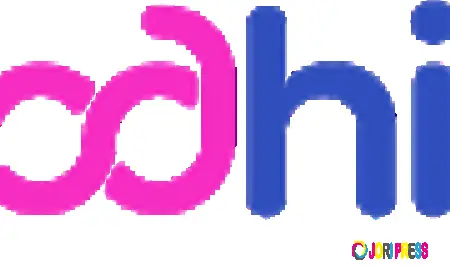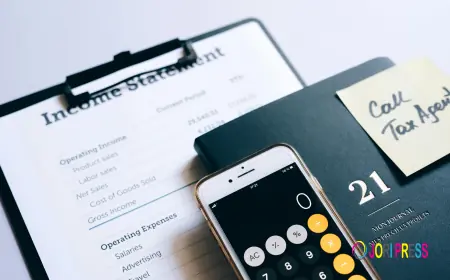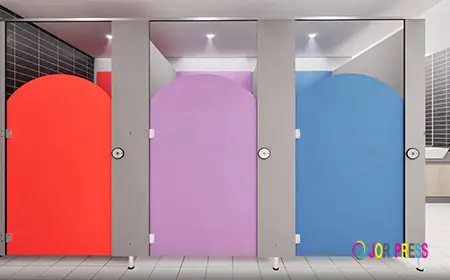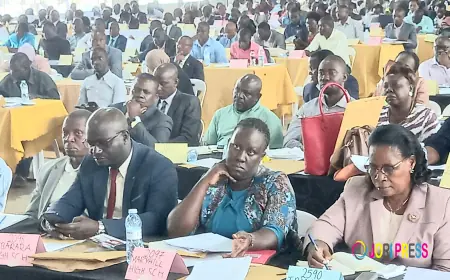Tummy Tuck Consultation Questions: Your Guide to a Confident Decision
However, the success and satisfaction of your Tummy Tuck in Riyadh journey depend heavily on choosing the right surgeon and understanding every aspect of the process.
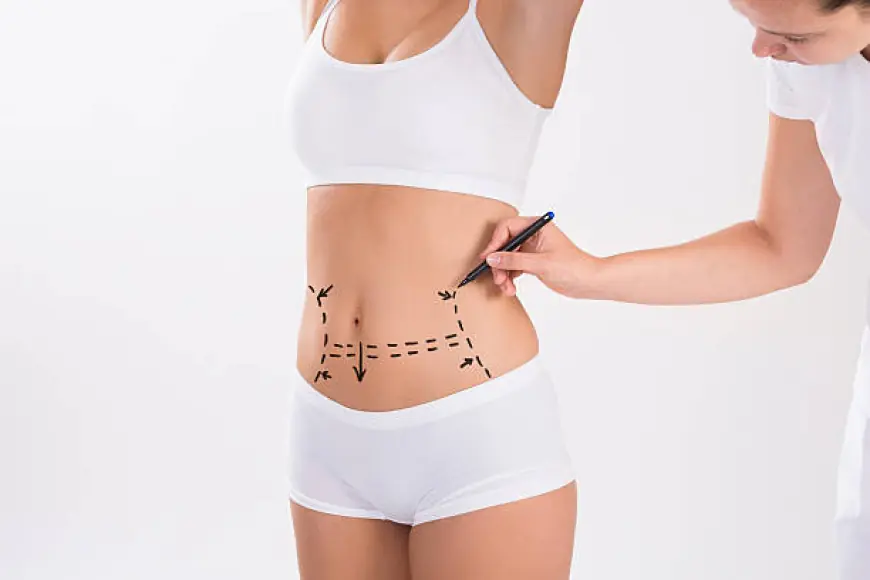
Deciding to undergo a tummy tuck (abdominoplasty) is a significant step towards achieving your body contouring goals. This transformative procedure can remove excess skin and fat, tighten abdominal muscles, and create a flatter, more toned midsection. However, the success and satisfaction of your Tummy Tuck in Riyadh (شد البطن في الرياض) journey depend heavily on choosing the right surgeon and understanding every aspect of the process. The consultation is your most crucial opportunity to gather information, assess your surgeon, and ensure your vision aligns with what can be realistically achieved.
Why a Thorough Consultation Matters
A tummy tuck is a complex surgical procedure, and no two patients are exactly alike. Factors such as the amount of excess skin, the degree of muscle laxity (diastasis recti), the presence of stretch marks, and overall body type all influence the surgical approach and potential outcomes. A comprehensive consultation allows your surgeon to:
-
Assess your unique anatomy: Determine the most suitable technique for your specific needs.
-
Understand your aesthetic goals: Ensure your desires are clearly communicated and understood.
-
Evaluate your candidacy: Confirm you are a good candidate for the procedure from a health perspective.
-
Set realistic expectations: Provide an honest appraisal of what can be achieved, including potential limitations and scarring.
For you, the patient, it's a chance to evaluate the surgeon's expertise, communication style, and the overall feel of the clinic. Coming prepared with a list of thoughtful questions will empower you to make an informed and confident decision.
Essential Questions for Your Tummy Tuck in Riyadh, Jeddah and Saudi Arabia Consultation
When you sit down with a surgeon to discuss Tummy Tuck in Riyadh, Jeddah and Saudi Arabia, it's important to ask a range of questions that cover their qualifications, experience, the procedure itself, recovery, and potential outcomes. This ensures you have a comprehensive understanding and feel comfortable with your choice.
Surgeon's Credentials and Experience
The surgeon's background and expertise are paramount.
-
Are you a board-certified plastic surgeon? This is fundamental. Board certification from a recognized body (like the Saudi Commission for Health Specialties or an equivalent international board) signifies that the surgeon has undergone rigorous training, passed comprehensive examinations, and adheres to strict safety and ethical standards. Be wary of general cosmetic surgeons who are not specifically board-certified in plastic surgery.
-
How much experience do you have with tummy tuck procedures specifically? How many do you perform annually? A surgeon might have many years of experience, but if they rarely perform tummy tucks, their specific expertise in this complex procedure might be limited. Look for a surgeon who performs abdominoplasty regularly.
-
Do you have hospital privileges for this procedure, and at which hospitals? This indicates that the surgeon has been vetted by hospitals and deemed competent to perform surgeries in a hospital setting, which often comes with higher safety standards than some private clinics.
-
Can I see before and after photos of your previous tummy tuck patients, particularly those with similar body types or concerns to mine? This provides a visual representation of the surgeon's aesthetic style and results. Look for consistent quality, natural-looking outcomes, and a diverse portfolio.
Candidacy and Personalized Plan
Understanding if the procedure is right for you and how it will be tailored to your needs.
-
Am I a good candidate for a tummy tuck? Why or why not? The surgeon should assess your general health, stable weight, skin laxity, muscle separation (diastasis recti), and discuss any factors that might affect your eligibility.
-
What type of tummy tuck procedure do you recommend for me (e.g., full, mini, extended, circumferential) and why? The surgeon should explain the different techniques and justify their recommendation based on your specific needs (e.g., amount of excess skin, location of fat, muscle laxity).
-
Will liposuction be included with my tummy tuck? Many tummy tucks are combined with liposuction to achieve a more contoured result around the waist and flanks. Discuss if this is necessary or beneficial for your goals.
-
What results can I realistically expect from this surgery? An honest discussion about achievable outcomes, including the appearance of scars, is vital. The surgeon should manage your expectations and avoid promising "perfection."
Procedure Details and Safety
Gaining clarity on the surgical process and the measures taken for your safety.
-
Where will the surgery be performed, and is the facility accredited? Ensure the surgical facility (whether a hospital or a private surgical center) is accredited by a recognized body, guaranteeing adherence to high safety and quality standards.
-
Who will administer the anesthesia, and what are their qualifications? Your anesthesiologist or certified registered nurse anesthetist (CRNA) should be a qualified professional with experience in administering anesthesia for complex procedures.
-
What are the potential risks and complications associated with a tummy tuck, and how are they managed? Every surgery carries risks. The surgeon should discuss common risks like bleeding, infection, poor wound healing, numbness, and less common but more serious complications, and explain how their team prepares for and manages these.
-
Will drains be used after surgery, and for how long? Drains are often used to prevent fluid accumulation, though some newer techniques aim to reduce or eliminate the need for them. Understand the surgeon's approach and what this means for your recovery.
Asking these questions during your Tummy Tuck in Riyadh consultation will provide you with a solid foundation of knowledge, allowing you to confidently move forward with your decision.
Recovery and Post-Operative Care: What to Expect After Your Tummy Tuck in Riyadh
Understanding the recovery process is just as important as knowing about the surgery itself. A well-informed patient is better prepared to manage post-operative discomfort, adhere to guidelines, and achieve optimal healing following their Tummy Tuck in Riyadh. The consultation is the ideal time to delve into these critical details.
The Recovery Timeline and Expectations
Clarifying the phases of recovery helps you plan your return to daily activities.
-
What is the typical recovery timeline for this procedure? How long until I can return to work, light activities, and strenuous exercise? The surgeon should provide a detailed breakdown of what to expect day-by-day and week-by-week, including when you can resume various activities. Most patients need 2-3 weeks off work, and 6-8 weeks before resuming strenuous exercise.
-
What kind of discomfort or pain can I expect, and how will it be managed? Discuss pain management strategies, including prescribed medications and alternative methods. Ask about the use of long-acting local anesthetics like Exparel, if applicable.
-
Will I need to wear a compression garment, and for how long? Compression garments are crucial for reducing swelling, supporting the healing tissues, and contouring the new abdominal shape. Understand the type of garment and the duration of wear.
-
How long will the swelling last, and when will I see my final results? Swelling is a normal part of recovery and can persist for several months. While initial results are visible early on, the final contoured appearance may take 6-12 months to fully emerge as all swelling resolves.
Scars and Long-Term Outcomes
Discussing the appearance of scars and the longevity of results.
-
Where will the incisions be placed, and what will the scars look like? The surgeon should show you where the scars will be (typically a horizontal line above the pubic area) and discuss strategies for minimizing their appearance.
-
How can I care for my scars to optimize their appearance? Ask about scar management techniques, such as silicone sheets or gels, and when you can start using them.
-
How long do the results of a tummy tuck last? What factors might affect the longevity of my results? Tummy tuck results are generally long-lasting, especially with a stable weight. However, factors like significant weight fluctuations or future pregnancies can impact the outcome.
-
What happens if I become pregnant after a tummy tuck? While the procedure doesn't prevent future pregnancies, it can compromise the results. Most surgeons recommend completing your family before undergoing a tummy tuck.
Post-Operative Support and Contingency
Understanding the support system and what to do in case of concerns.
-
Who should I contact if I have concerns or questions during my recovery? Ensure you have clear contact information and know who to reach out to for post-operative support, whether it's the surgeon directly or a dedicated nursing team.
-
What is the follow-up schedule after surgery? Regular follow-up appointments are crucial for monitoring your healing and addressing any issues.
-
What is the clinic's policy on revision surgery if the initial results are not satisfactory or if a complication arises? While rare, complications or the need for a revision can occur. Understand the surgeon's approach and any associated policies.
By thoroughly discussing these recovery and post-operative care questions during your consultation, you can approach your Tummy Tuck in Riyadh with confidence and a clear understanding of the journey ahead.
Beyond Questions: Building Trust and Making Your Decision
The consultation is not just about gathering facts; it's about building a relationship of trust with your potential surgeon. This human element is just as crucial as their credentials and experience. Feel, intuition, and comfort play a significant role in making the right choice for your Tummy Tuck in Riyadh.
Trust Your Instincts
While all the objective information is vital, pay attention to your gut feeling.
-
Comfort Level: Do you feel comfortable and respected by the surgeon and their team? Do they listen attentively to your concerns?
-
Communication Style: Is the surgeon's communication clear, empathetic, and easy to understand? Do they avoid overly technical jargon?
-
Professionalism: Does the clinic environment feel professional, clean, and organized?
If something feels off, or if you feel rushed or unheard, it might be a sign to seek a second opinion.
Second Opinions Are Encouraged
For a procedure as significant as a tummy tuck, getting a second (or even third) opinion from different board-certified plastic surgeons is a wise decision.
-
Compare Approaches: Different surgeons may have slightly different techniques or perspectives on what's best for your case. Comparing these can help you clarify your own preferences.
-
Gain Confidence: Multiple consultations can boost your confidence in your final choice, knowing you've thoroughly explored your options.
The Decision-Making Process
Once you've gathered all the information, take your time to make a thoughtful decision.
-
Review All Information: Go over your notes, the provided materials, and before-and-after photos.
-
Reflect: Consider how you felt during each consultation. Which surgeon made you feel most at ease and confident?
-
Financial Clarity: Ensure you have a clear understanding of all associated fees (which are separate from the content of this blog) and payment options.
Choosing a surgeon for your Tummy Tuck in Riyadh is a personal journey. By asking the right questions and trusting your instincts, you empower yourself to make an informed decision that leads to a positive experience and satisfying results.
Frequently Asked Questions
When considering a tummy tuck in Riyadh, patients often have specific concerns about the procedure and its practicalities. Here are some unique FAQs to address those points.
Many people wonder: Can a Tummy Tuck in Riyadh eliminate all my stretch marks?
While a tummy tuck is highly effective at removing excess skin, particularly in the lower abdomen, it primarily eliminates stretch marks located on the skin that is surgically removed (typically below the belly button). Stretch marks located above the belly button, or on the flanks, will remain, though their appearance might be slightly improved as the skin is tightened. The extent of stretch mark removal depends entirely on their location relative to the excised skin.
Is it true that: A Tummy Tuck in Riyadh is just for weight loss, not for muscle repair?
This is a common misconception. A Tummy Tuck in Riyadh is not primarily a weight loss procedure; it's a body contouring surgery. While some excess fat is removed along with the skin, its main purpose is to eliminate loose skin and, crucially, to repair weakened or separated abdominal muscles (a condition called diastasis recti) which often occurs after pregnancy or significant weight fluctuations. This muscle repair is what creates a flatter, firmer abdominal wall and a stronger core, addressing issues that diet and exercise cannot.
Often asked: Will I be able to have more children after a Tummy Tuck in Riyadh without ruining the results?
While a tummy tuck does not prevent future pregnancies, it is generally advised to complete your family before undergoing the procedure. Subsequent pregnancies can stretch the skin and abdominal muscles again, potentially reversing the results of your tummy tuck. While the benefits might not be completely "ruined," a revision surgery could be necessary to restore the original improvements, making it more practical to have the surgery once you are certain you are done having children.
Frequently inquired: What distinguishes a "mini" Tummy Tuck from a "full" Tummy Tuck in Riyadh?
The main distinction between a mini tummy tuck and a full tummy tuck in Riyadh lies in the extent of the incision and the areas addressed. A mini tummy tuck involves a shorter incision, usually just above the pubic area, and primarily addresses loose skin and fat located below the belly button. It often doesn't involve muscle repair above the belly button or repositioning of the belly button itself. A full tummy tuck, on the other hand, involves a longer horizontal incision and often a separate incision around the belly button. It allows for removal of more significant amounts of skin and fat from both the upper and lower abdomen, as well as comprehensive tightening of the abdominal muscles from the ribs down to the pubic area, providing a more dramatic and comprehensive result.
Empower Your Transformation
Your decision to pursue a tummy tuck is a significant step towards renewed confidence and a more contoured physique. By coming prepared with thoughtful questions for your consultation, you empower yourself to choose the right surgeon and embark on this journey with clarity and assurance.
Ready to start your journey towards a flatter, firmer abdomen? Connect with the experienced professionals at Royal Clinic Saudia for a personalized Tummy Tuck consultation in Riyadh. Visit their website to take the first step:
What's Your Reaction?
 Like
0
Like
0
 Dislike
0
Dislike
0
 Love
0
Love
0
 Funny
0
Funny
0
 Angry
0
Angry
0
 Sad
0
Sad
0
 Wow
0
Wow
0

